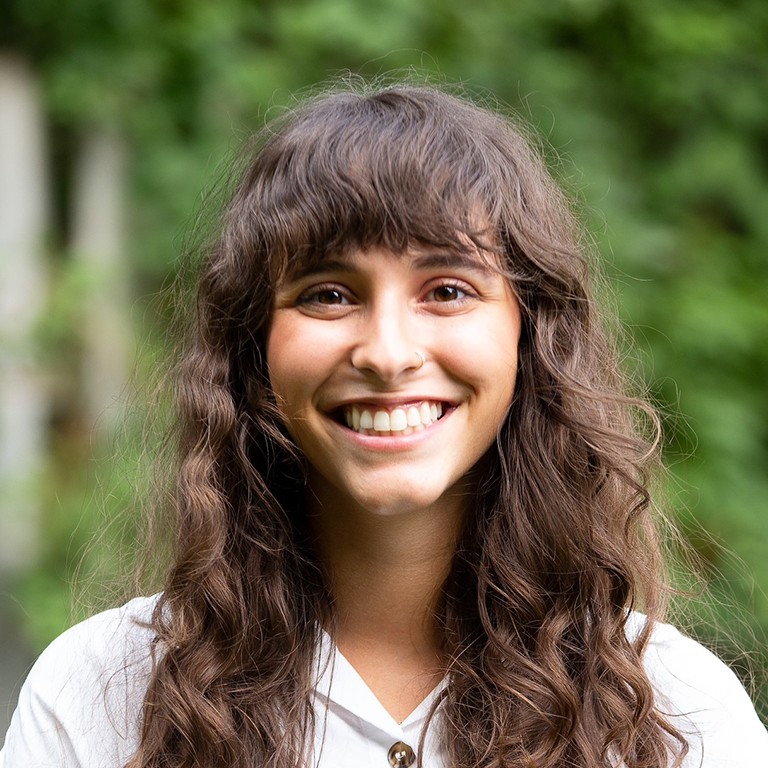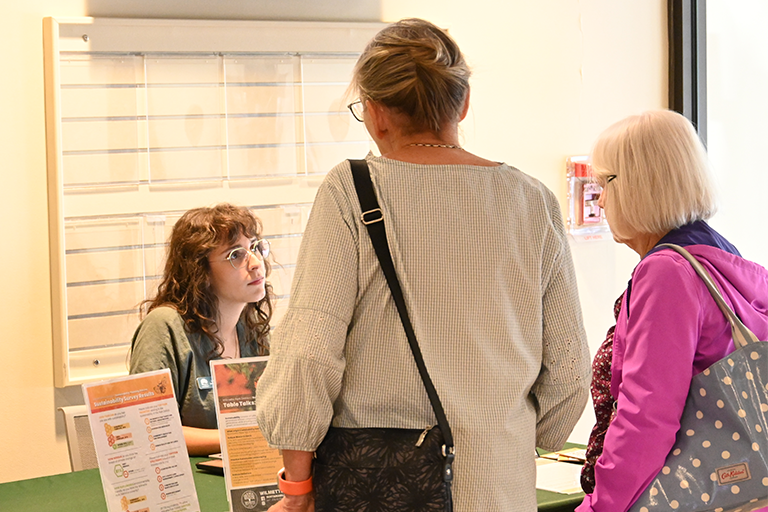This Q&A series highlights McKinney Climate Fellows alumni and their professional journeys within Indiana and beyond. The McKinney Climate Fellows program, administered by Indiana University’s Environmental Resilience Institute and Integrated Program in the Environment, connects IU undergraduate and graduate students interested in climate, sustainability, and community resilience with career experiences.
When Lucy Mellen enrolled at IU Bloomington, she knew she wanted a career in the environmental sector but wasn’t sure what that might look like. In 2020, she became a McKinney Climate Fellow, working with Earth Charter Indiana to facilitate their climate education and leadership programming.
The experience crystallized the community-oriented professional pathway that appealed to Mellen. After graduating in 2021 with a degree in sustainability studies, she spent two years leading a pilot project to educate and protect residents of Richmond, Ind. from the effects of extreme heat. Today, she leads the sustainability activities of the Village of Wilmette, a suburb north of Chicago.
The following interview has been lightly edited for length and clarity.
What major projects did you work on during your Earth Charter Indiana placement as a McKinney Climate Fellow?
I worked on multiple projects. I connected with local governments to promote Earth Charter Indiana’s Climate Leadership Summit. I also helped with some youth education for their Climate Camp in the summer. While working in Northwest Indiana, I was able to collaborate with other climate advocates to accelerate climate action in the region. It was a great way to meet people in the area.
What did you learn as a McKinney Climate Fellow and how did it inform your career path?
The biggest thing that stood out to me is that so much of climate work is people work. There’s education, engagement, partnerships, and coalition building. Climate work isn’t done in a vacuum, you inherently need to rely on other practitioners. Everyone wants to work together, and I’ve met so many people in the field who jump at the opportunity to collaborate. The notion that there’s so much talent to tap into and that people want to share best practices was instilled in me when working with Earth Charter.
The McKinney Climate Fellows program helped to both solidify my desire to continue working with and for local governments. Until I was a McKinney Climate Fellow I knew I wanted to work in the environmental sector but wasn't sure what exactly that could look like. Through the program, I connected with professionals doing the work I aspired to be doing and learned about all of the various organizations that work in municipal and nonprofit sustainability.
What called you to pursue a career focused on climate sustainability and why did you decide to work in the Midwest?
Growing up, my dad instilled his interest in National Parks and the beauty of the natural world in me. I remember taking an environmental science class in high school. I couldn’t understand why everyone wasn’t talking about climate change all the time and that I was just now finding out about it!
I decided to make climate change something I talked and thought about every day. When I thought about what I wanted to study in college, climate and sustainability stood out to me. I had the opportunity to talk about these issues and I wanted to make it my job.
For the Midwest specifically, there’s so much work to be done here, and there’s no one better to do it than the people who love and know the region. We have a stake in the region, and I feel like I owe it to the Midwest region to work here.




